Getting closer…
At last, the news that we’ve been waiting for … Leeds City Council have agreed that all of the pre-conditions have been agreed and signed off. This means that the tarmac can finally be laid at the back of school. The work will be completed by mid-April – the majority of the work being done in the Easter holidays so there’ll be no disruption to learning or the school day.
As well as the ongoing development at the back of school, we’ve also been busy looking at other ways to improve the school environment.
In terms of being environmentally friendly, we’ve been successful in securing a bid for the school from the Public Sector Decarbonisation Scheme. This means that we’ll be making a few green improvements in the summer holiday:
- Heating – Our current gas boiler will be replaced by an Air Source Heat Pump which will reduce gas (and the associated costs) from the school. The new system will use more electricity than a standard gas boiler so solar panels will be installed to generate renewable electricity.
- Solar Panels – These will be mounted on the roof of the school and they’ll generate enough energy to cancel the additional demand of the heat pump, but they’ll also generate additional energy which will be offset against the grid energy we use at the moment. They’ll also generate energy during the holidays and any energy that’s not used will be sold to the national grid.
- Lighting – All the lighting will be changed to LED so our electricity usage will be reduced.
We’ve previously mentioned improvements to the front playground. The surface at the front is starting to show wear and tear (as well as look grubby) – it needs replacing. Whilst the equipment is in a reasonably acceptable state, what we need to avoid is re-surfacing the front and then in a couple of years needing to start replace equipment (which would damage the surface). After weighing up various options, we’ve decided it makes best long-term financial sense to replace all at the same time.
The School Council has been busy looking at equipment ; they had a virtual meeting with a representative from the company who’ll do the work and then looked at different options. We’re aiming for this to be completed in the Summer half-term.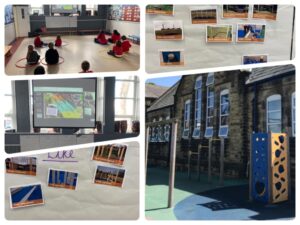
All in all, some exciting developments for Moortown Primary!
Welcome back
Today, we were able to welcome our children back into class. It was lovely to see so many smiling faces first thing this morning. The children have had a great day and have all settled back into school life. We started our day by sharing our feelings and emotions. Following this, we have had a fairly relaxed day and have spent a lot of time chatting and catching up with each other.
Here are a few quotes from the children.
I’m so happy to see my friends.
I’m looking forward to being able to play with my friends.
I have missed my teachers.
I feel excited but a little bit nervous ,too!
I feel really proud of all the home learning I managed to do!
My family are very proud of me.
I feel really cool to be back at school.
Please can you return your child’s reading books, library books and home learning books as soon as possible – thank you.
We’re closed today
We’re closed today because of the very snowy conditions and the forecast that this will continue throughout the morning.
Key staff in school (that is, enough for each bubble) would struggle to get into school safely.
Please check out our Home learning page.
Christmas songs
A couple of songs for you to enjoy. Fingers crossed that the link works! 
https://drive.google.com/file/d/1jWtNx9RcwDG0grwwZQ7frQ_9nBr8gUME/view?usp=sharing
https://drive.google.com/file/d/1j_cwoovkWtwUlNJuqtJn5pM0SxnOOqXr/view?usp=sharing
Living and learning: RSE
Over the last three weeks, we’ve been learning about RSE – relationships and sex education.
We’ve learnt about such a wide range of topics, from what happens during puberty to how to maintain healthy relationships with friends, family and others!
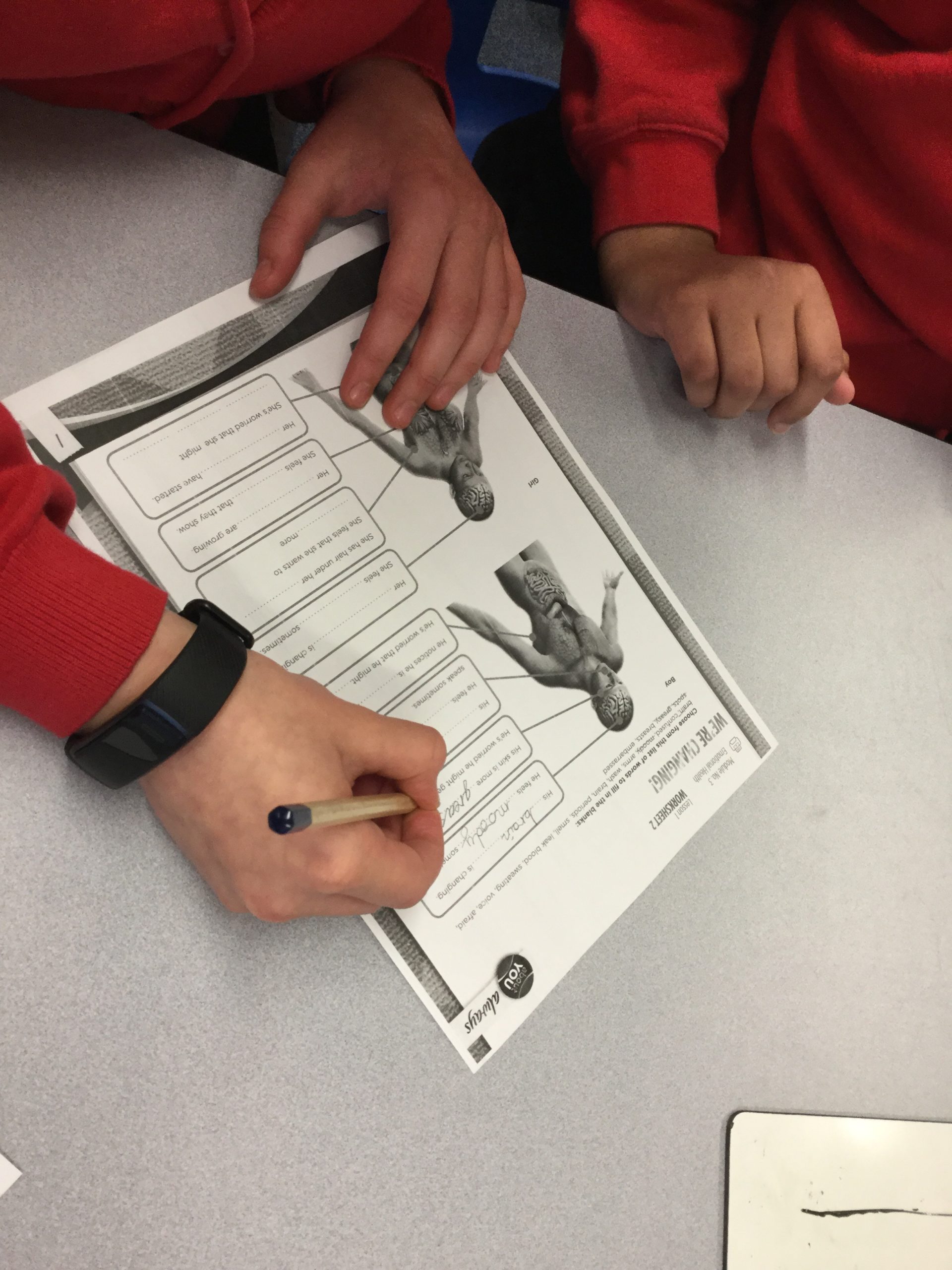

We’ve learnt that our emotions might change a lot but that nothing is permanent and we know how to help ourselves. Reading about inspirational people who have experienced a rollercoaster of emotions and hearing stories from members of our class really made us feel better. We’re all in this together!
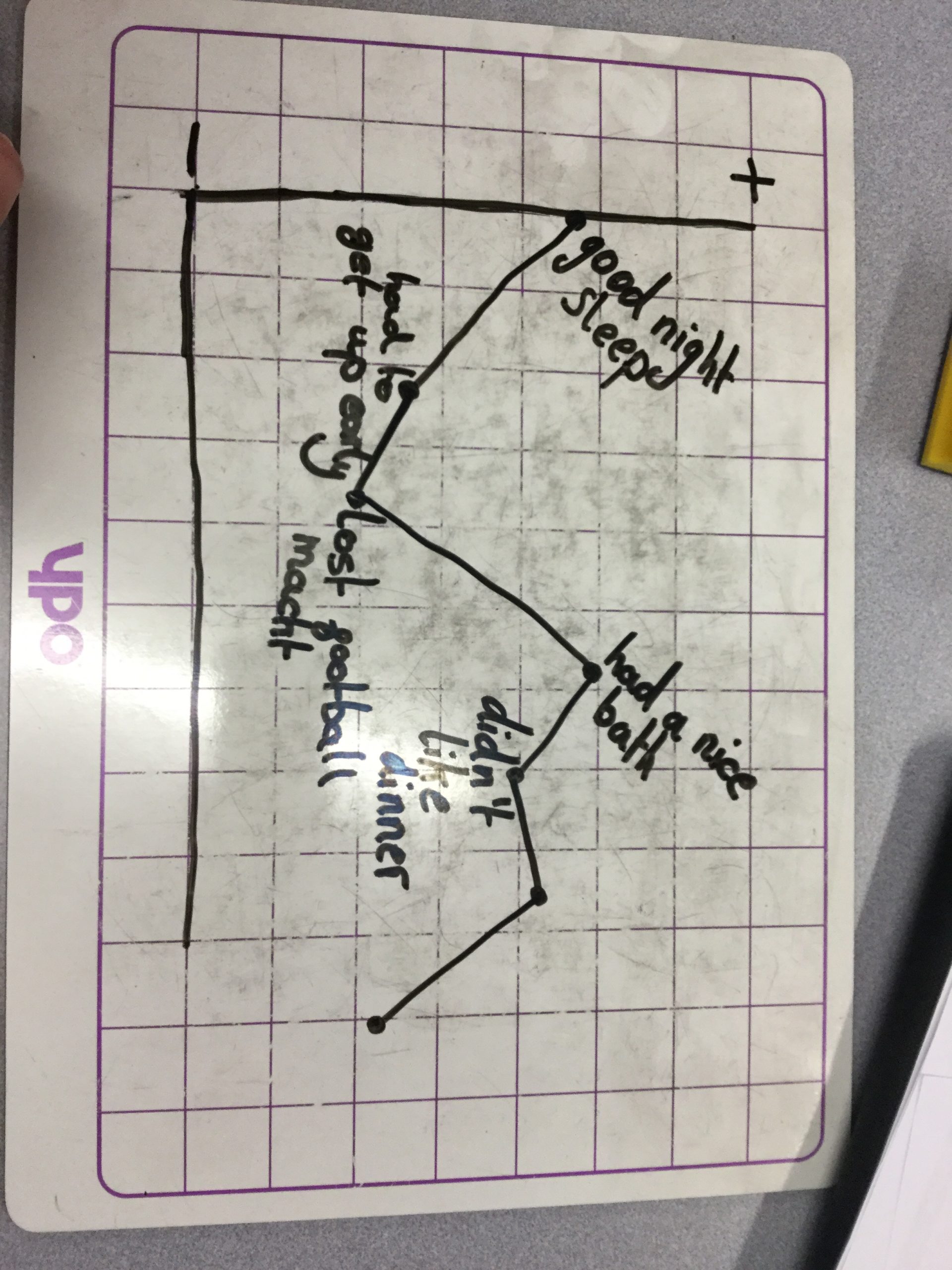
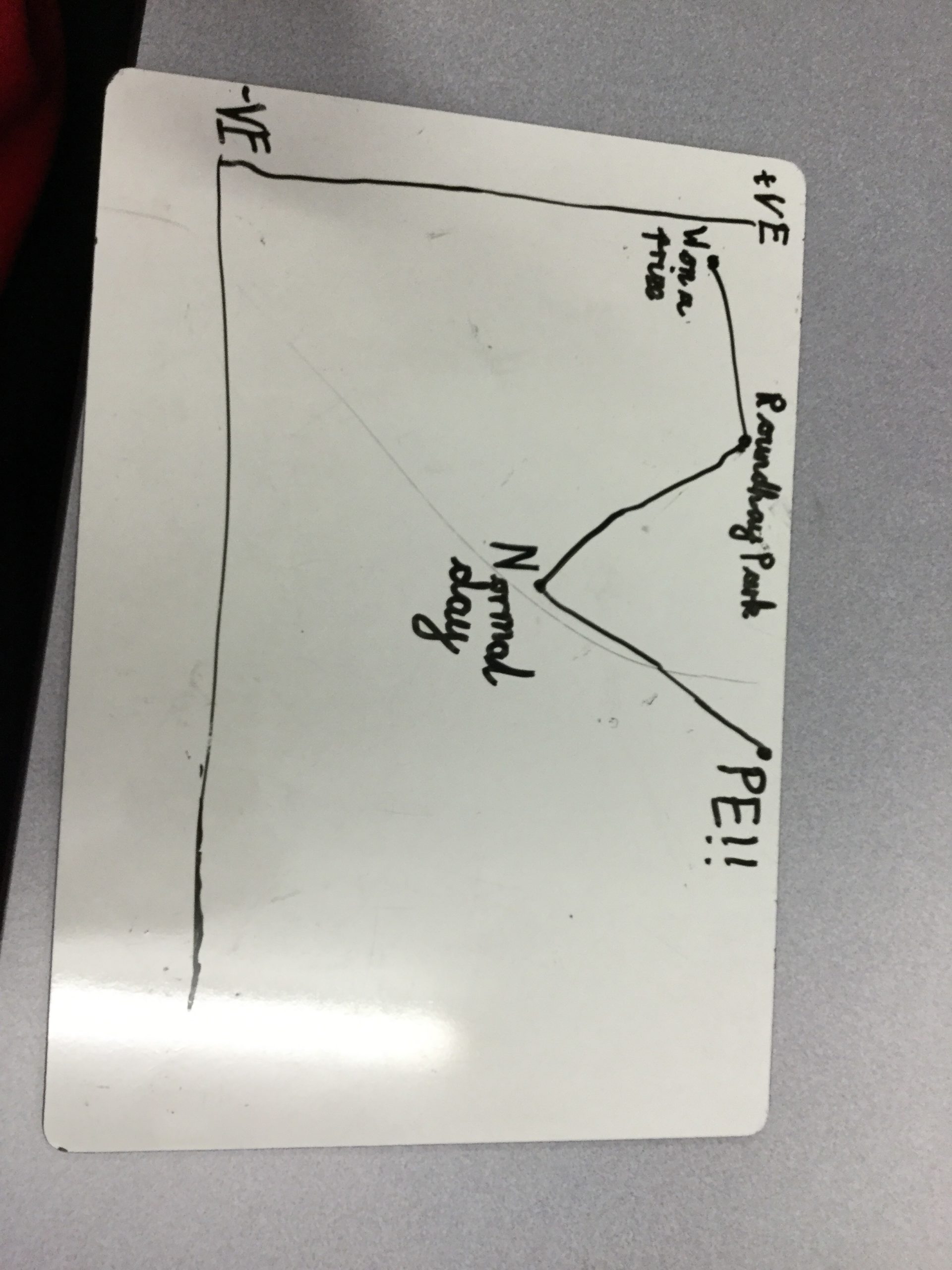
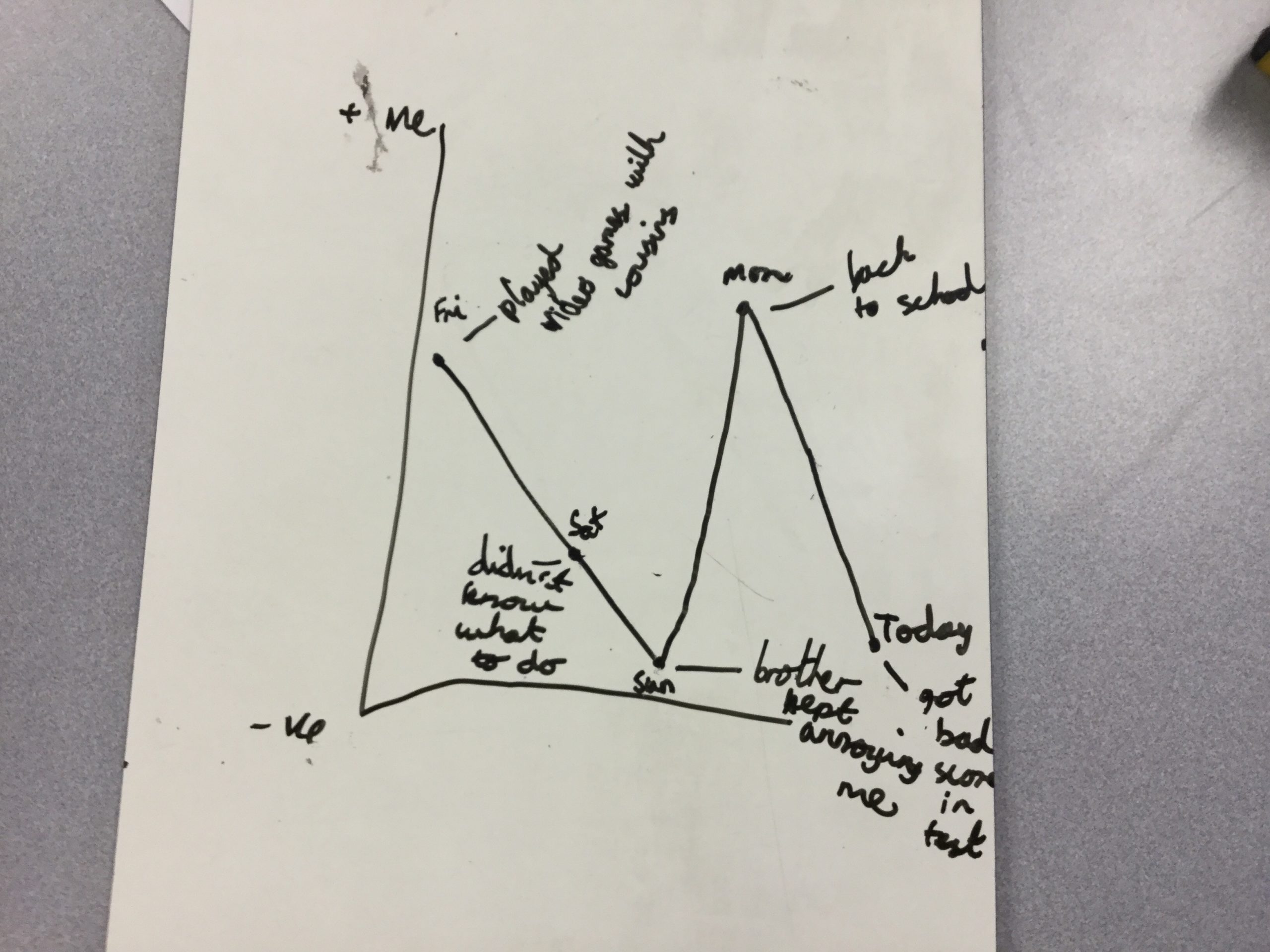
We’ve covered a lot of science over the last three weeks and feel much more knowledgeable! Teamwork has also been a huge factor in what we’ve been doing, as has listening carefully and contributing thoughtfully.

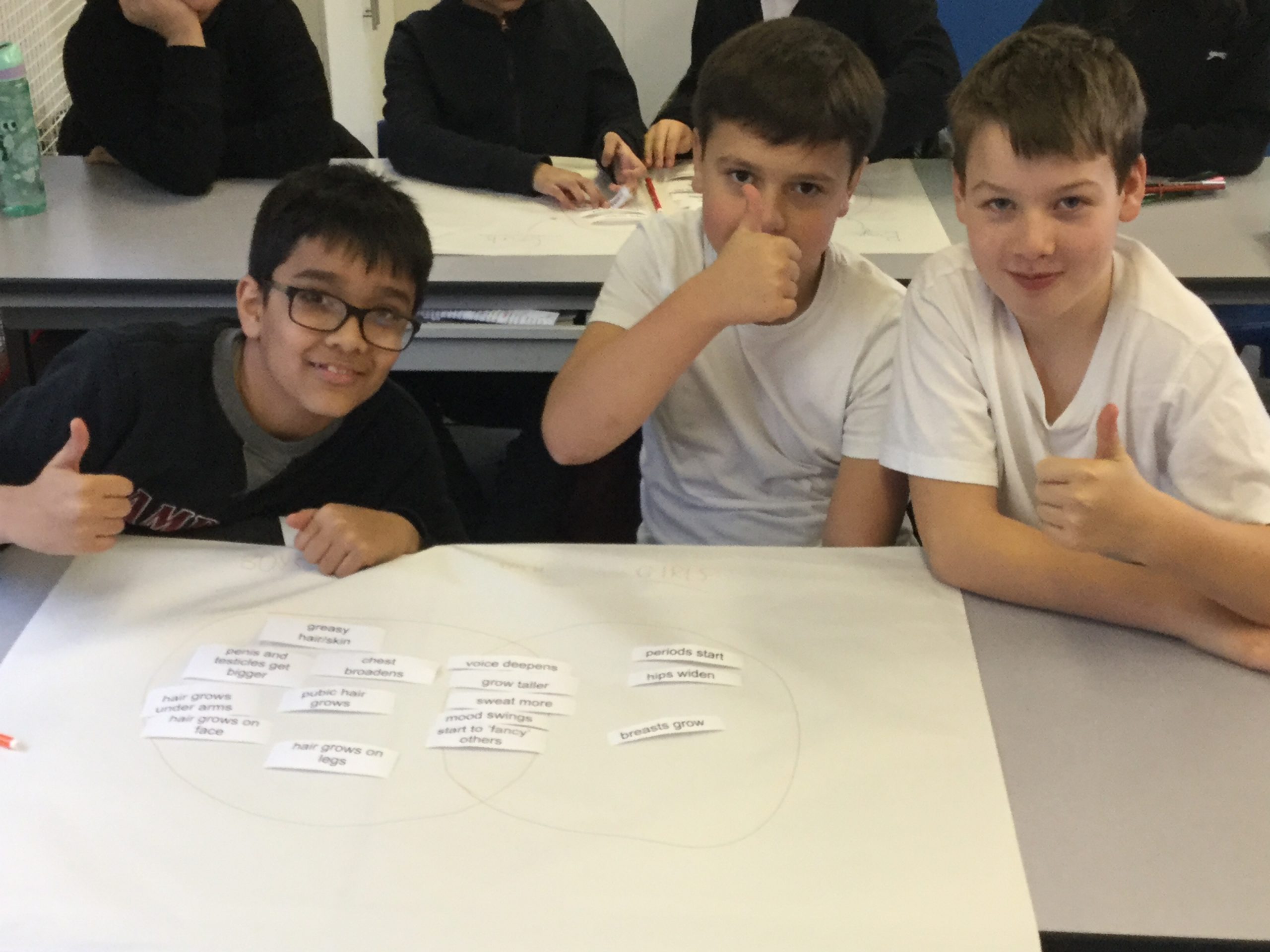
“At first, I thought it’d be nerve-wracking but now I think it’s been so helpful because I know what might happen in future,” said Hifza.
“It’s been very helpful even if it was a bit strange at times!” laughed Joude.
Noah said, “It’s been very interesting learning about RSE. It’s really just learning how humans have survived and reproduced as a species.”
History: pyramids
Why did the Ancient Egyptians build pyramids? Y6 know!
After researching some cool facts (check them out below), we made and decorated our pyramids with our information and even some hieroglyphics.
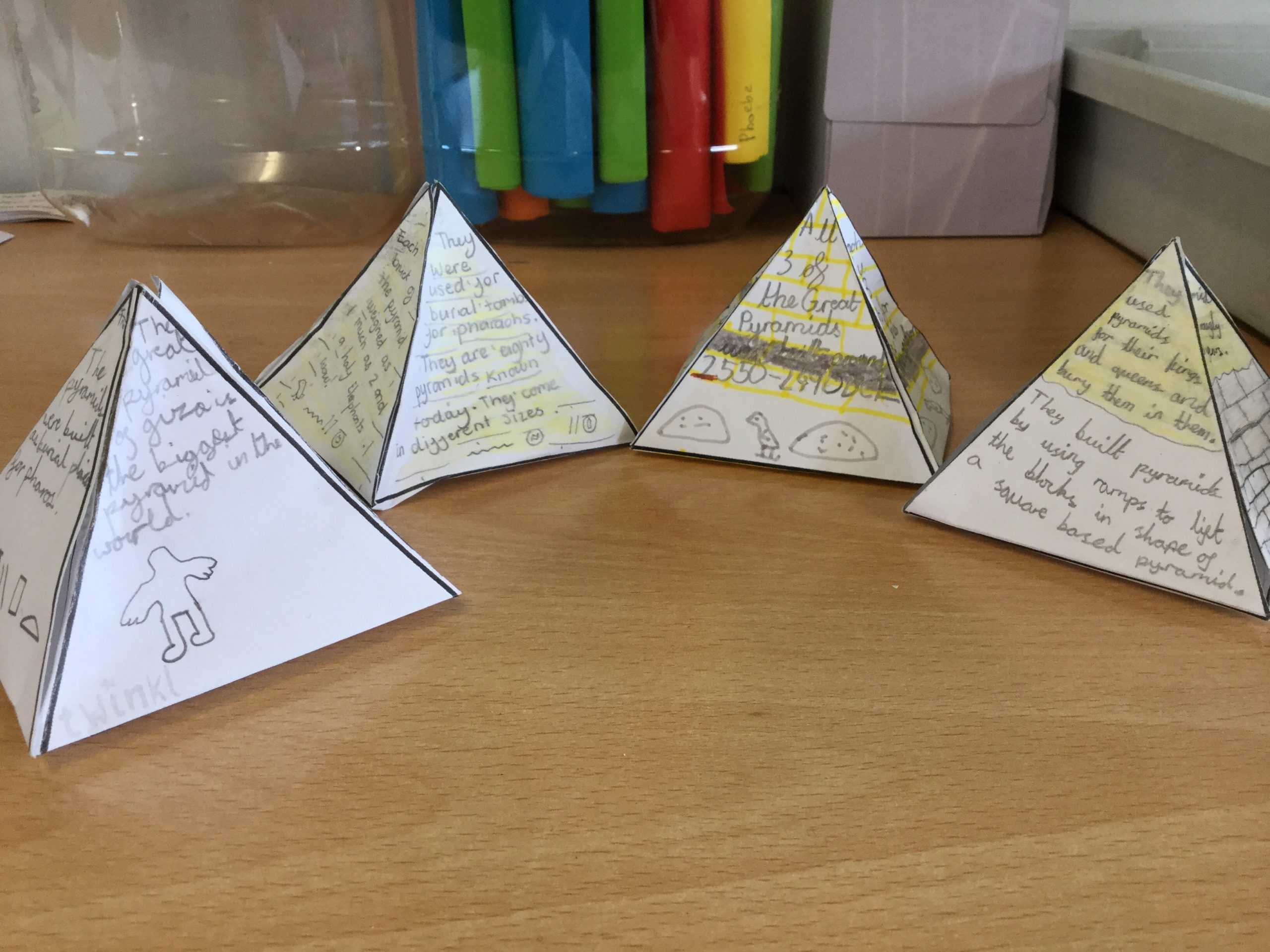

One of our History words is the Rosetta Stone.
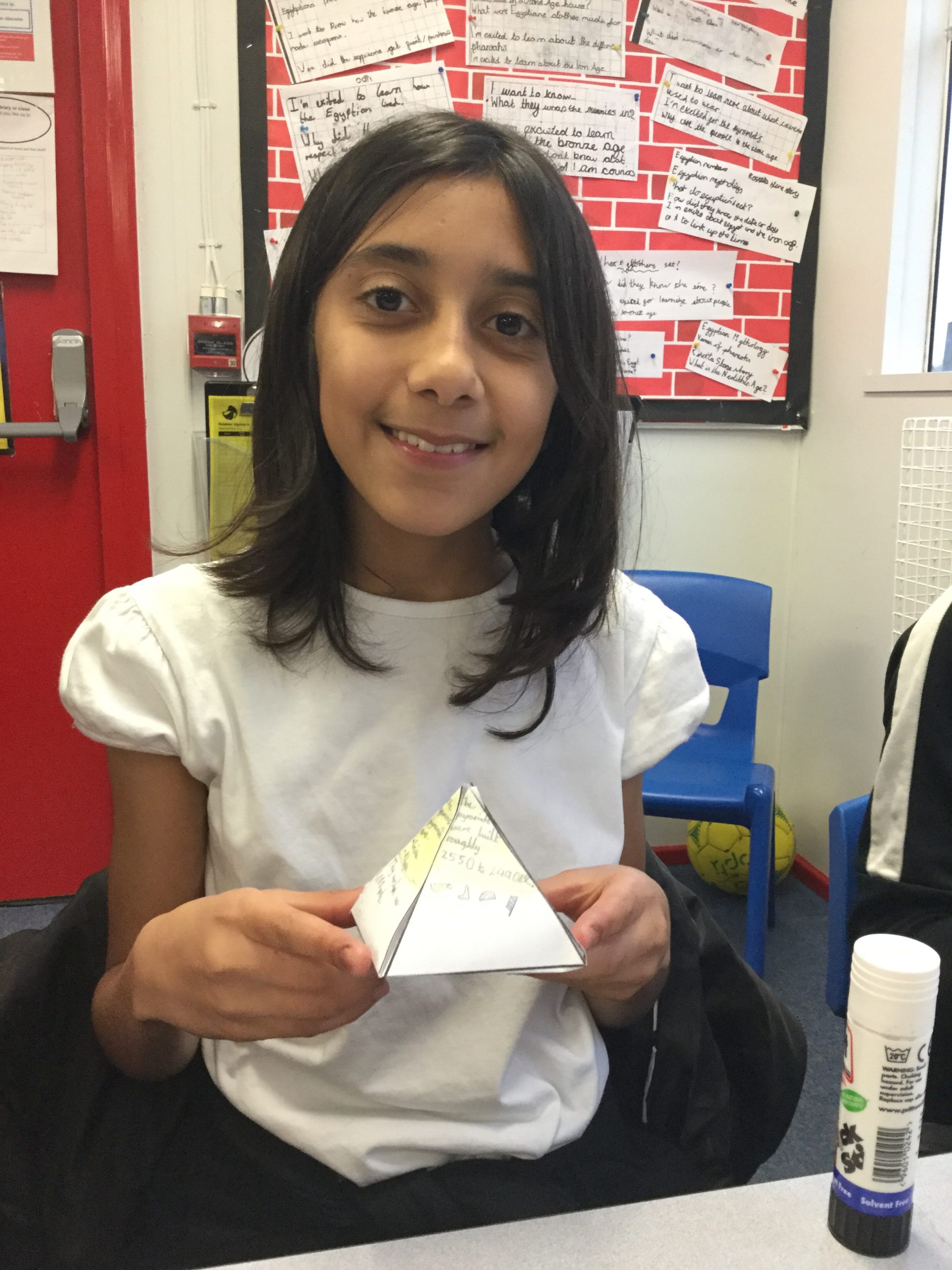
Albie said, “The Rosetta Stone was found in a fort near Rosetta, Egypt. It has three different languages on it: cursive Egyptian, Greek and hieroglyphics. Scholars knew Greek and cursive Egyptian so they used it to work out what the hieroglyphics meant.”
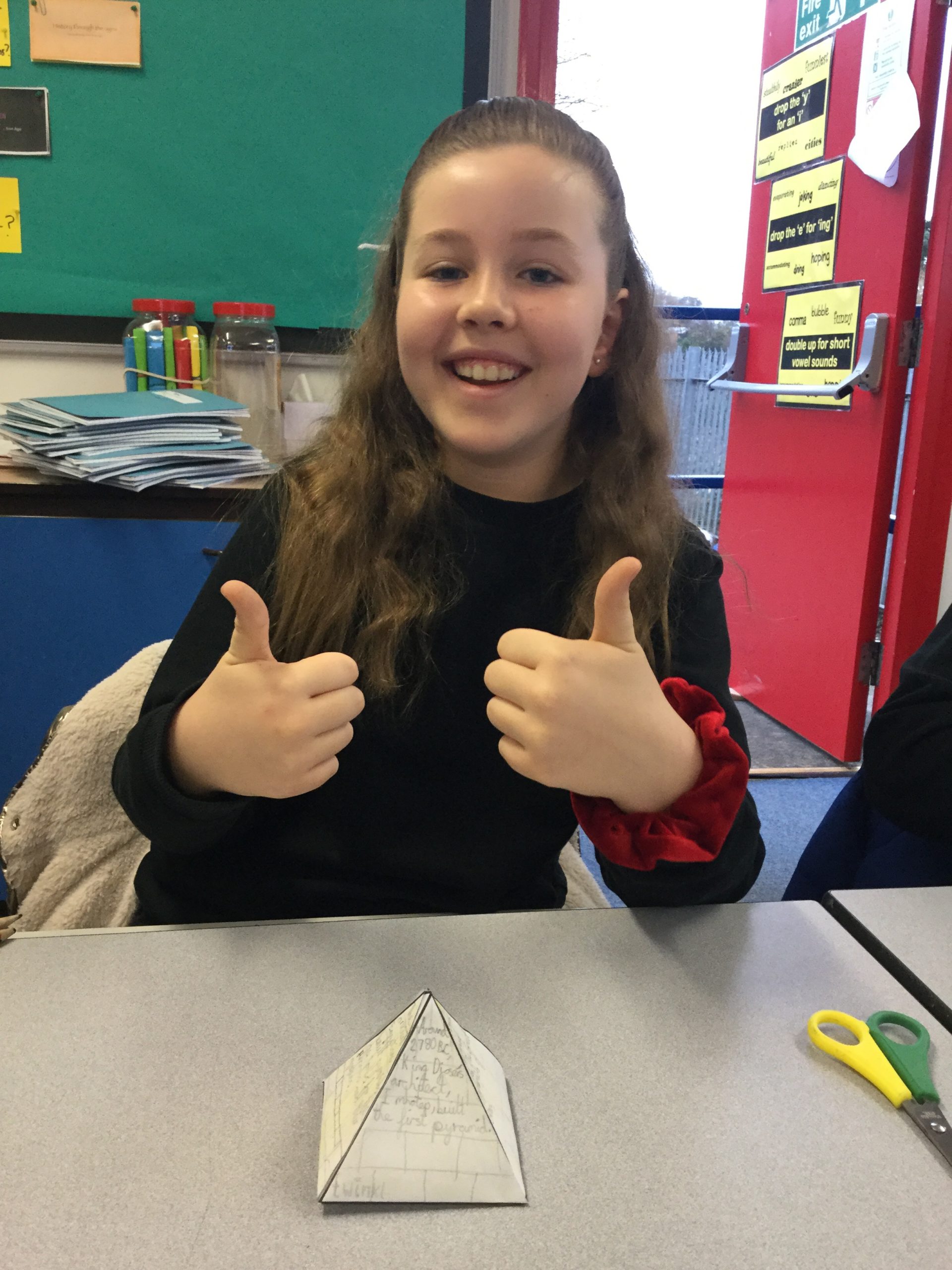
Rayn said, “It’s now located in the British museum and it was found by a soldier!”

Leo said, “It was found by a captain called Pierre in 1799 and in 1801 it was transported to the British museum. In 1802, they managed to find out what the hieroglyphics meant!”
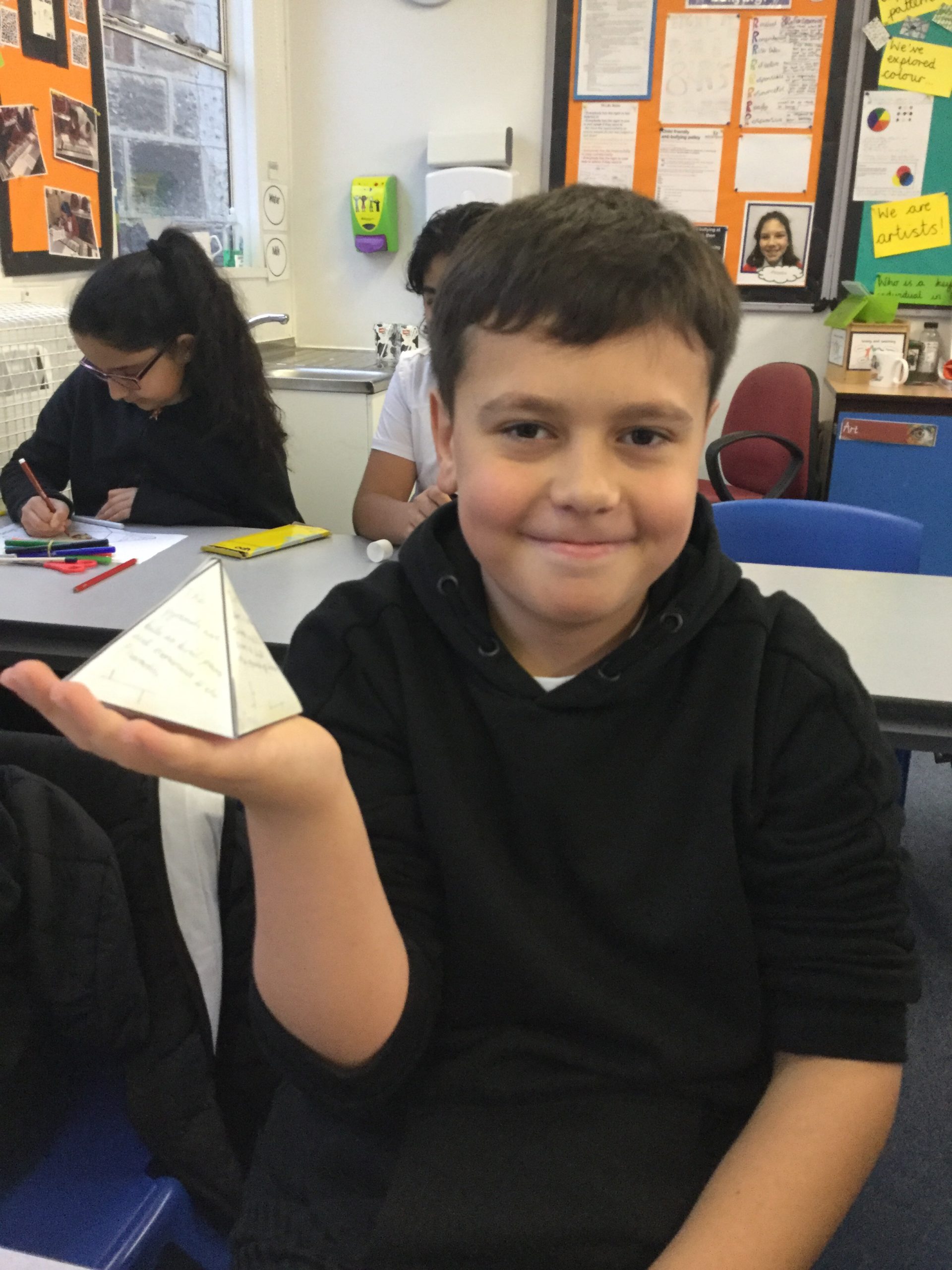
Safiya-Mishal said, “I found this task easy and hard. Finding facts was easy but when we came to actually sticking the pyramid together, mine kept falling apart but I had help from Yusayrah!”
Hifza shared, “I found it challenging because you had to fold every part carefully and use the glue to put it together. Finding out the facts was interesting because there was lots of things I hadn’t learnt before.”
Maths: fractions
This week, we’ve started a new topic of tricky fractions!
I’ve been so impressed with how we’ve learnt to find equivalents, add and subtract and convert mixed numbers to improper fractions and back again.

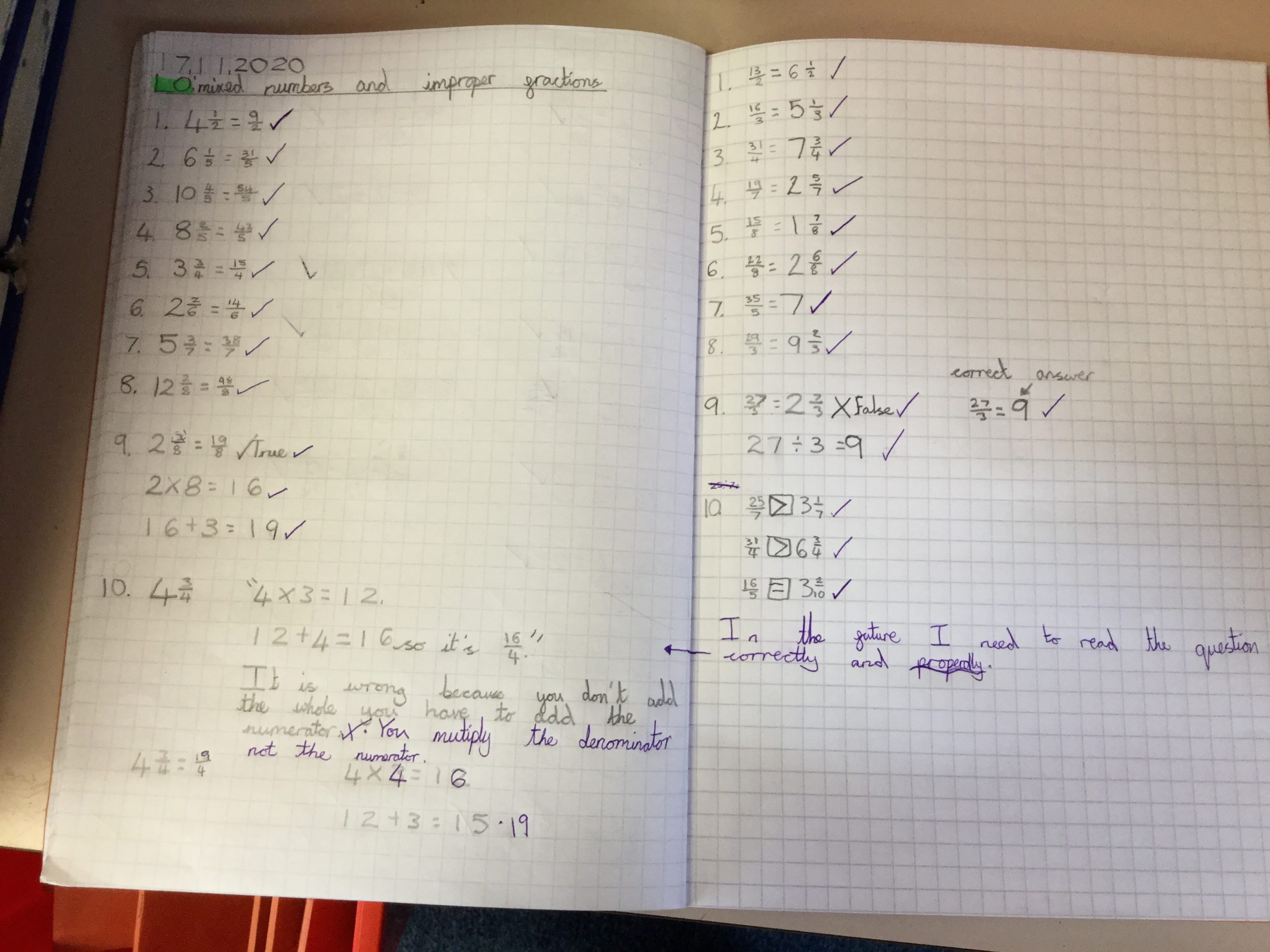




Take 2 and 1/3 for example:
Yusayrah said, “First, you multiply the whole number by the denominator. 2 wholes x 3 = 6 or 6/3 (six thirds). Next, you add the extra 1/3 to give you a total of 7 thirds because the denominator always stays the same. The answer would be 7/3.”
Challenge your child to do the opposite of this and explain how to convert an improper fraction such as 7/4 (seven quarters) to a mixed number!
Living and Learning: United against bullying
This week, it’s Anti-Bullying Week and the theme for this year is ‘United against bullying’.
Don’t forget – we are also taking part in Odd Socks Day on Monday 16 November.
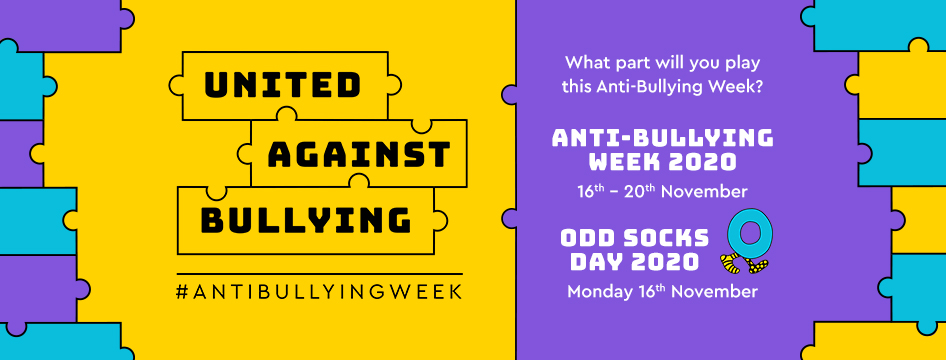
STOP is a key message linked to bullying. In our school, STOP stands for two things:
- the definition: Several Times On Purpose
- the solution: Start Telling Other People
Recently, our school council met to review our school definition of bullying and our child friendly anti-bullying policy. Thank you to the school councillors for their valued contributions. As a result, our definition and policy have now been updated.
Child friendly anti-bullying policy
What is bullying?
In our school, this is what bullying means:
Bullying is where you hurt someone, physically or emotionally (including online), several times on purpose.
What might bullying look like?
If any of these things happen several (lots of) times, it is bullying.
- Hurting peoples’ feelings, for example, name calling, teasing, threatening, ignoring, leaving people out or spreading rumours
- Hurting peoples’ bodies, for example, hitting, punching or kicking
This could be in person or online (cyber bullying) and could be because of someone’s race, disability, gender, appearance, age or any other protected characteristic.
What could you do if you are being bullied?
Start
Telling
Other
People
Who could you tell?
- Mrs Weekes/Mrs Freeman/Mrs Russell/Mrs Small (they are child protection staff)
- Mrs Taylor (Health Leader)
- Any other members of staff
- Friends
- Someone in your family
- A trusted adult
- Childline (0800 1111)
- Write a worry slip and put it in your Living and Learning box or the whole school worry box
- Email stayingsafe@spherefederation.org
Our views on bullying
STOP bullying – bullying is wrong! We’re a happy and healthy school.
Week beginning: 09 November 2020
Good morning Y6!
I hope you’re well and enjoying our learning as much as I am. I’m especially loving our History learning.
Remember, if you want to listen along to the class novel, Wolf Brother, you can find parts one and two (and more!) on YouTube.
If you need any help or want to ask any questions, please don’t hesitate to send an email to jenwilson@spherefederation.org!
Now, onto this week’s learning.
Maths
In school, this week, we’re focusing on a range of areas: division, mental calculations, reasoning and arithmetic.
Children should use these resources:
- Division video, worksheet, answers
- Division – part two video, worksheet, answers
- Arithmetic worksheet with answers at the bottom
(Let me know your score via an email. If there’s one you don’t know how to do, leave it and move on. We will be practising these papers on roughly a weekly basis and they test areas of maths we haven’t covered yet in Y6; it is good to get used to them! We will be doing this paper in class, too.) - Mental calculations video, worksheet, answers
- Reason from known facts video, worksheet, answers
You don’t have to print the worksheets. Your child can write or draw their answers on paper. Your child’s learning will be most effective if you sit with them to pause the clip and check / praise / support your child as the clip moves on.
Practise times tables on Times Table Rockstars, too. We’re concentrating on a mix of times tables, so your child should focus on the times table they find most difficult. Email me if you need your child’s login and password details.
(Suggested time: 30 minutes of Maths and 15 minutes of Rockstars daily)
Spelling
Look on the spelling section of the website for this week’s spellings. Your child should complete one task each day.
- Day 1: Generate more words linked to the spelling pattern or ‘rule’. (You could look out for the words in the book you’re reading at home, or any other text, like a website linked to our learning.)
- Day 2: Practise the spellings using two of the ideas in our Super Spelling Strategies Guide . (Set yourself and others at home a challenge of using some of the words when you’re speaking, too!)
- Day 3: Write separate sentences, each containing one of the spellings. (Don’t forget to show off really neat handwriting and make sure you sentence starts with a capital letter and ends with a full stop, exclamation mark (!) or question mark (?).
- Day 4: Repeat Task 2 or 3.
- Day 5: Get an adult at home to test you on your spellings. Practise any you spell incorrectly – you could write them out carefully until you’re sure.
(Suggested time: 15-20 minutes daily)
Reading fluency
This is the text we’ll read in class to build up fluency skills this week.
In school, we generally follow this sequence:
- Day 1: Read the text aloud with your child listening. Read it clearly and slowly, pointing to each word as you read. Have a chat about any unfamiliar words.
- Day 2: Read aloud each sentence (a full short sentence or part of a longer sentence), and have your child read it back to you. Do this ‘echo reading’ for the whole text.
- Day 3: Read the text and talk about the effect of the punctuation on how you read it – pauses for full stops and expression for exclamations (!) or questions (?). Your child reads the text aloud.
- Day 4: Read together with expression (just like you practised on Day 3).
- Day 5: Your child reads independently and fluently.
(Suggested time: 15 minutes daily)
Reading comprehension
Day 1: Read the pages of Wolf Brother on our homework page this week, completing this grid.
We’re then going to be reading two famous poems this week:
1. I Wandered Lonely as a Cloud, by William Wordsworth
Follow these slides on the poem and complete the lesson explained on them.
2. Matilda, Who told Lies and was Burnt to Death by Hilaire Belloc (it’s a comedy, honest!)
Follow these slides and complete the lessons explained on them.
Day 5: Book Club. Once a week, we have a relaxing lesson where we sit and read quietly, often with an adult. At home, we’d like you to read your favourite book or text, too. If possible, discuss the book with an adult, talking about some or all of the sections of this grid.
(Suggested time: 30 minutes daily)
Writing
We’re continuing to think about promotional writing and we’ve read Torak’s Weapons in class as an example of what we want children to write.
This week, we will be answering the questions on this sheet to plan our writing, before then writing our own promotion of an Ancient Egyptian pyramid.
Have a look at this example of how we might start it (yellow words are highlighted to show expanded noun phrases, which we’ve been revising recently).
Watch this video on expanded noun phrases. Try to include these in your writing!
Topic
This week’s topic learning is about history. We’re continuing our topic all about prehistoric Britain compared to advanced ancient civilisations.
In class, we’re going to research facts about:
- Indus Valley
- Ancient Rome
- Ancient Greece
- Ancient Egypt
- The Shang Dynasty
Your task is to do the same. You need to find out three facts about each of the advanced societies above.
Then, answer these questions:
- What makes the advanced societies similar to each other?
- How are they different?
- What makes them similar to prehistoric Britain?
- How are they different?
- Which advanced society would you have lived in and why?
(Suggested time: 30-40 minutes)
Science
We’re starting a new topic of forces. This lesson from Oak National Academy links closely to what we’ve been doing in class.
Email me to let me know how you got on!